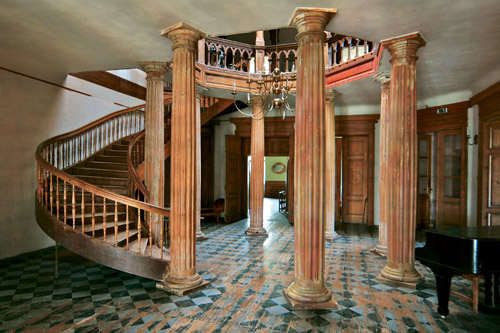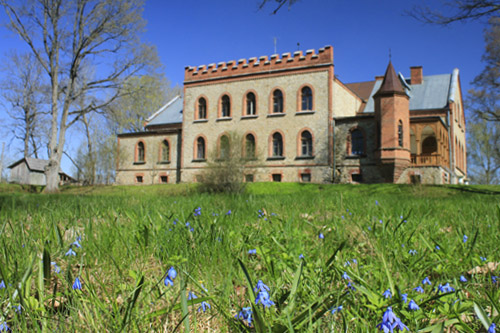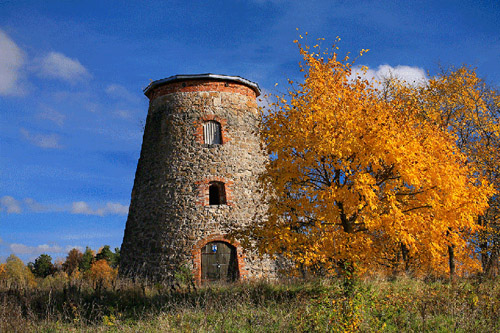The words inscribed in the doorstep of Zvartava castle: "Hic habitat Felicitas, nihil mali intret" (Here lives happiness, no evil will enter), through centuries have protected both the marriage of first owners of the castle – Luise and Gothlib fon Ferzen, and the current owners in their creative activities, as well as the guests.

About 200 Estonians and Latvians got up early on September 20 to catch their bus for Estonia -- Latvia Road Trip, an event intended to showcase the examples of successful cooperation between the two countries and to celebrate the second European Cooperation Day. Four busses departing from Tallinn, Tartu (pickup also in Valka), Rīga and Alūksne (pickups also in Ape and Voru) drove a total of 1830 km and took participants through Estonia and Latvia. The Road Trip ended with European Cooperation Dinner & Celebration at Zvārtava Castle in Latvia that is located only 5 km from the border with Estonia.

The castle is surrounded by a park with a terrace with a view to the lake. The masters’ house was built in 1881 and it is in the style of Tudor neo-Gothic. The architectural-artistic arrangement of Zvartava Castle does not conform any more to the language of the Tudor neo-Gothic forms of the 1930s-60s century. It is original and expresses local views on the understanding of the style of the past.

|

|

|

|
|
|
|